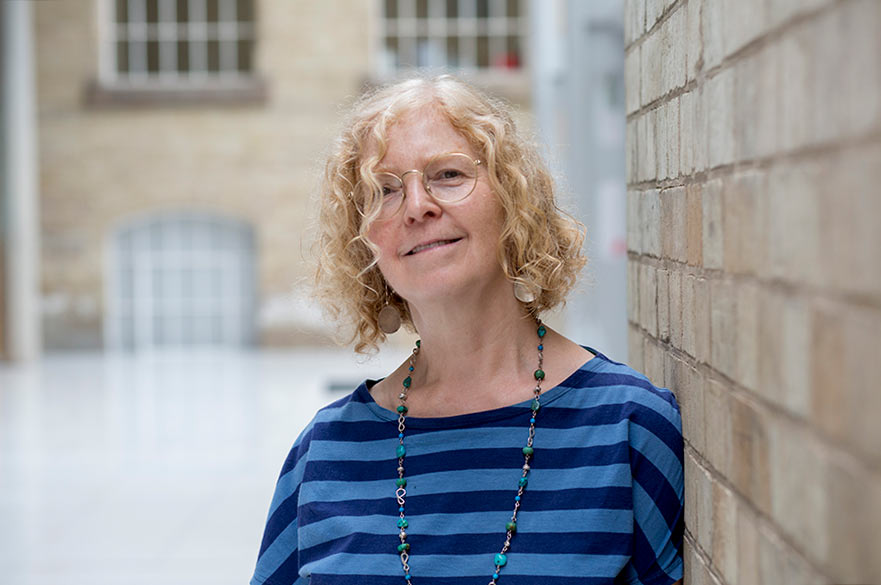Focus and flow: Skateboarding shown to benefit mental health of young women
The freedom, fun and focus of skateboarding is leading to direct mental health benefits and body self-compassion among young women and girl skaters.
By Helen Breese | Published on 1 August 2024
Categories: Press office; Research; School of Social Sciences;

Research by Nottingham Trent University, and funded by The Leverhulme Trust, involved 48 female skateboarders aged 8-27, of varying ability and practising a range of approaches and styles, from skateboarding spaces and communities in both urban and rural locations.
Interviews and focus groups questioned the young women on how skateboarding contributes to their mental health and wellbeing.
The discussions considered aspects of freedom and fun, focus and flow, direct mental health benefits, social connectedness, and body self-compassion and physical health.
Respondents spoke about the fun and exhilaration of the sport, especially in relation to achieving an adrenaline rush, and the feeling of physical freedom which comes with confidence on the board.
Along with excitement, the young women also discussed their experiences of focus and a sense of flow, with the concentration and immersion needed for skateboarding giving them a sense of wellbeing and calm. This also allowed them to be in the present moment without intrusive thoughts – giving them an escape from difficult life events.
This deep focus was also linked with body self-compassion and trust, with the skateboarders trusting their bodies to have a sense of what to do next without worrying about limitations or failings.

Professor Carrie Paechter, School of Social Sciences
Several of the young women spoke about the performative and competitive aspects of skateboarding and had consciously stepped away from the constant desire to improve to avoid any stress.
While some find it harder to become full members of local skateboarding communities, others benefitted from the increased take-up of skateboarding by young women, finding community in girl-dominated groups or regular woman and girl sessions in managed skateparks.
They particularly benefited from the joy, calm and mutual recognition of sharing their skateboarding experiences with friends, and even spoke about finding communities away from their home cities and countries.
The research forms part of a wider 20-month study of the lived experiences of young woman skateboarders led by Professor Carrie Paechter, Professor of Childhood, Youth and Family Life at NTU’s School of Social Sciences.
Professor Paechter said: “Skateboarding is often perceived as a risky and male-dominated activity, but it has the potential to support better physical and mental health in young women and girls.
“We can see from the research that it offers a unique space for young women, who can be vulnerable in terms of mental health and body positivity, to cultivate body self-compassion, find community, and enhance their overall wellbeing.
“Even at international level, failing and falling is built into the competition and there is considerable mutual support and encouragement between girl and young woman competitors in particular.
“I hope this ethos continues and encourages more young women to skate so they can experience the trust in their bodies, social interconnectedness, and the excitement, joy, and calm of skateboarding.”
The research, "Free therapy”: young woman skateboarders, mental health, and body self-compassion, will be published in the International Review for the Sociology of Sport.
Notes for Editors
Press enquiries please contact Helen Breese, Public Relations Manager, on telephone +44 (0)115 848 8751, or via email.
About Nottingham Trent University
Nottingham Trent University (NTU) received the Queen’s Anniversary Prize for Higher and Further Education in 2021 for cultural heritage science research. It is the second time that NTU has been bestowed the honour of receiving a Queen’s Anniversary Prize for its research, the first being in 2015 for leading-edge research on the safety and security of global citizens.
The Research Excellence Framework (2021) classed 83% of NTU’s research activity as either world-leading or internationally excellent. 86% of NTU’s research impact was assessed to be either world-leading or internationally excellent.
NTU was awarded The Times and The Sunday Times Modern University of the Year 2023 and ranked University of the Year in the Whatuni Student Choice Awards 2023. It was awarded Outstanding Support for Students 2020 (Times Higher Education Awards), University of the Year 2019 (Guardian University Awards, UK Social Mobility Awards), Modern University of the Year 2018 (Times and Sunday Times Good University Guide) and University of the Year 2017 (Times Higher Education Awards).
NTU is the 5th largest UK institution by student numbers, with approximately 40,000 students and more than 4,400 staff located across five campuses. It has an international student population of 7,000 and an NTU community representing over 160 countries.
Since 2000, NTU has invested £570 million in tools, technology, buildings and facilities.
NTU is in the UK’s top 10 for number of applications and ranked first for accepted offers (2021 UCAS UG acceptance data). It is also among the UK’s top five recruiters of students from disadvantaged backgrounds and was the first UK university to sign the Social Mobility Pledge.
NTU is ranked the second most sustainable university in the world in the 2022 UI Green Metric University World Rankings (out of more than 900 participating universities).